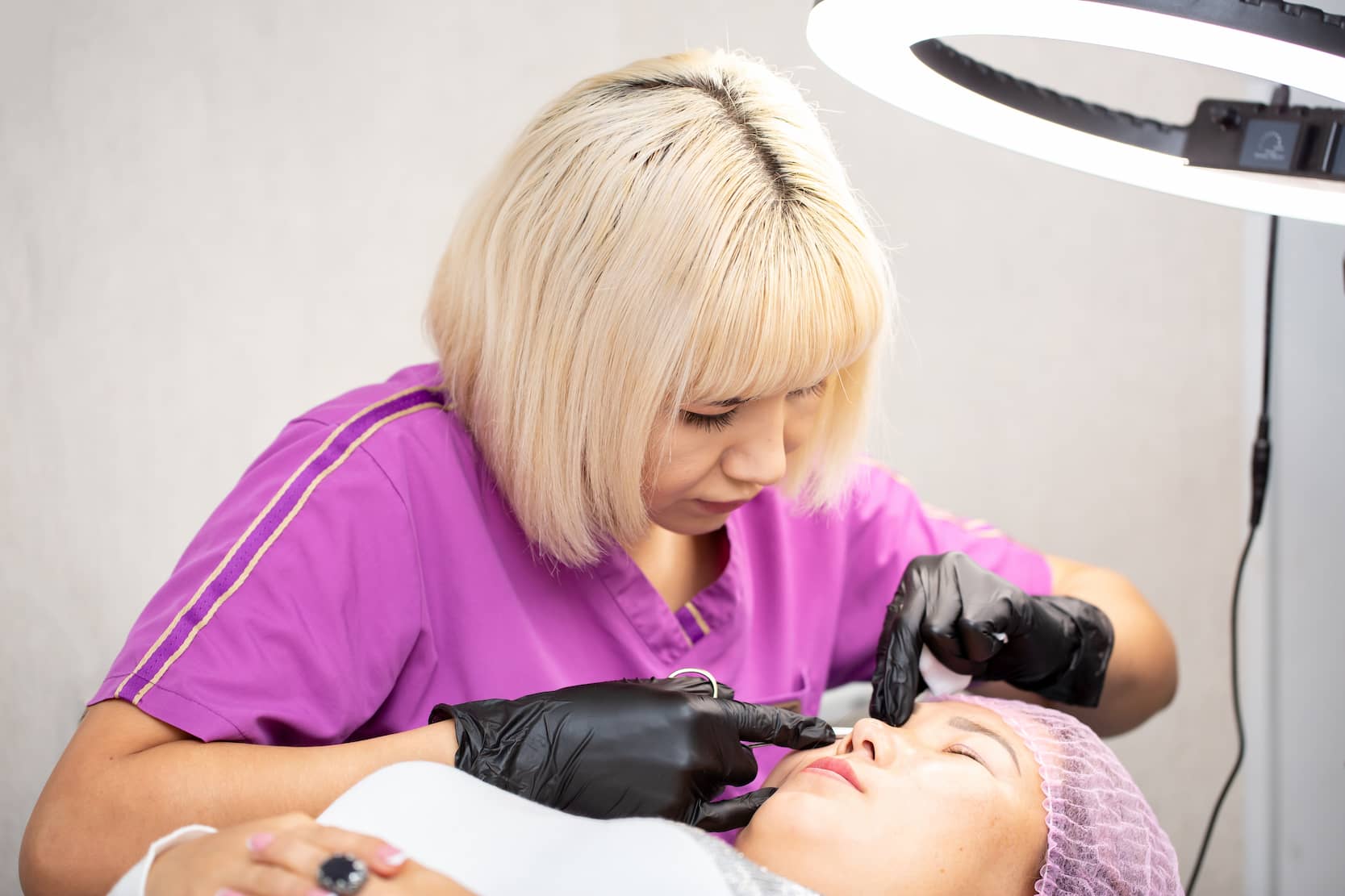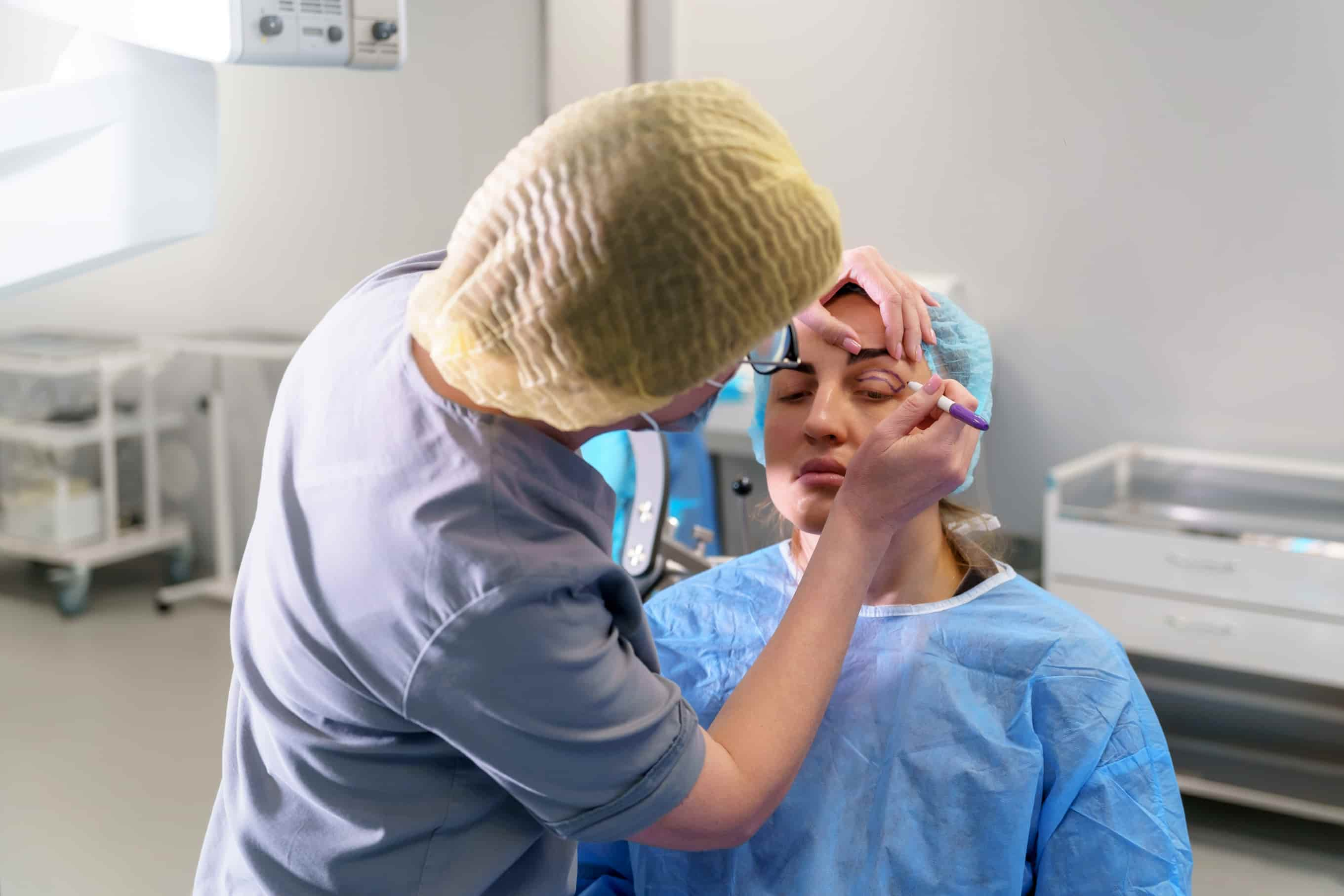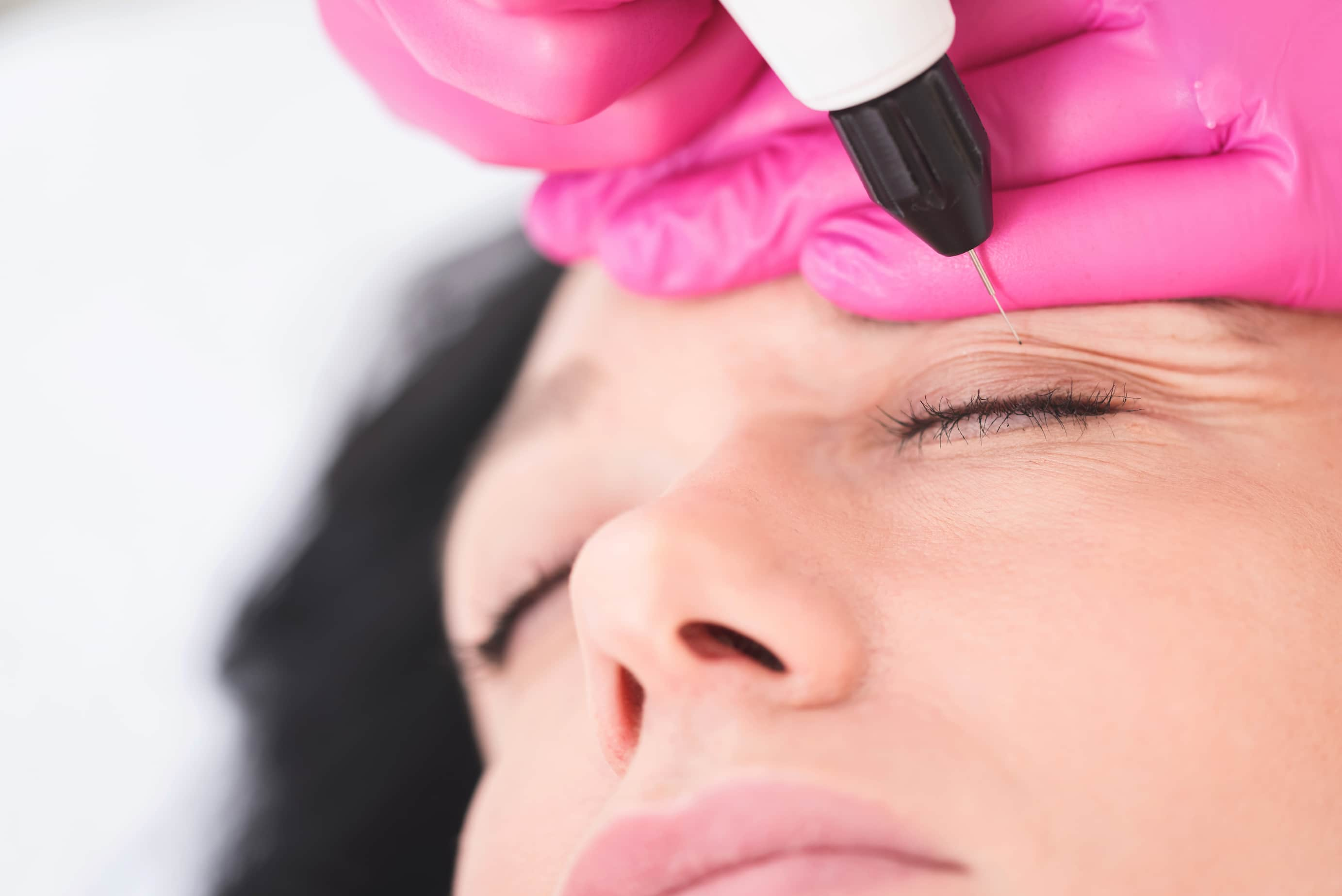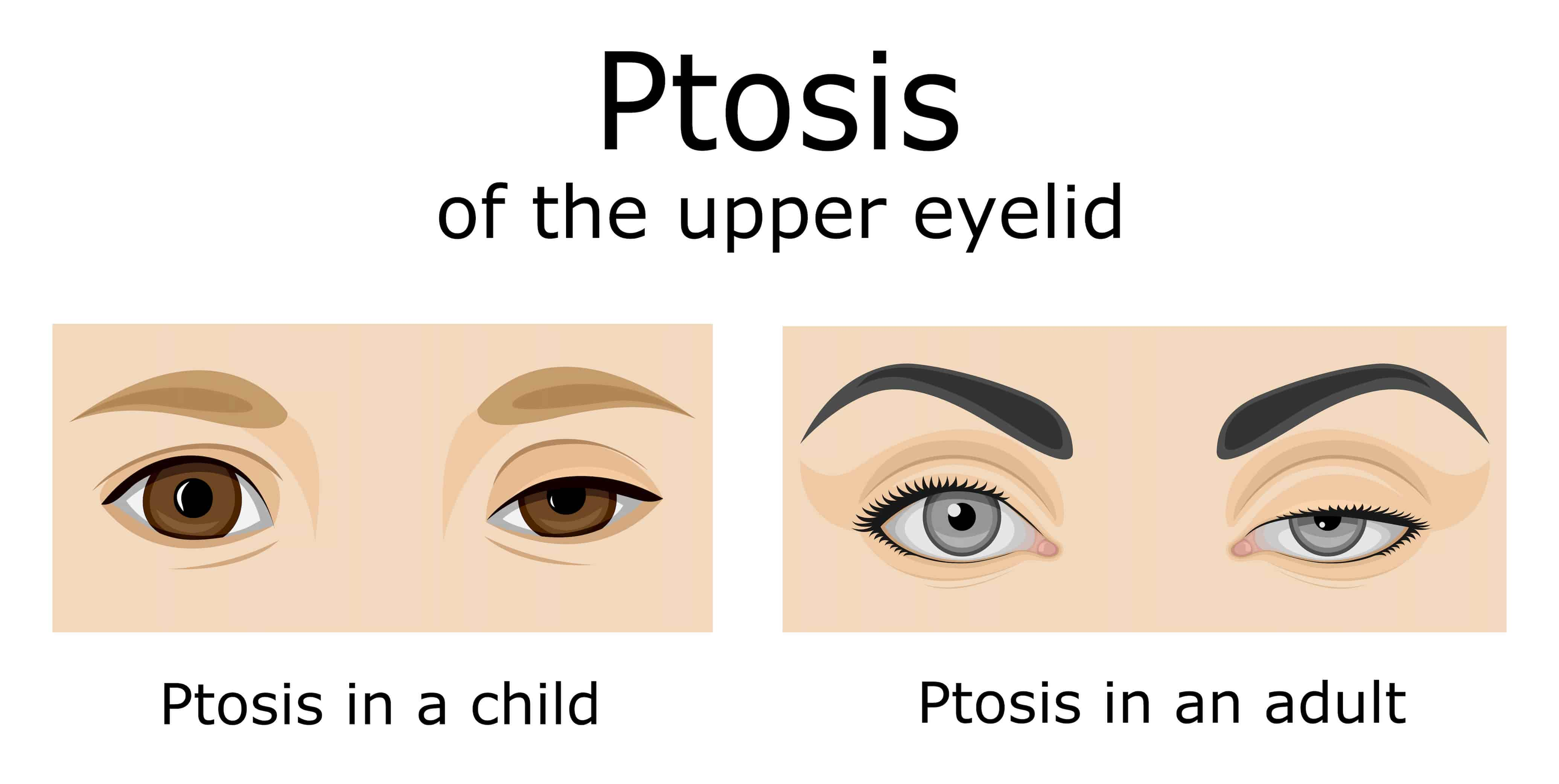Ptosis Treatment in Turkey
Healthy Türkiye helps you find the best ptosis treatment in Turkey at affordable prices and adopts a 360-degree service approach in all areas of health through affiliated hospitals.
- Medical Treatment
- Eye Surgery in Turkey
- Corneal Transplant in Turkey
- Lasik Eye Surgery in Turkey
- Retinal Detachment Treatment in Turkey
- Cataract Surgery in Turkey
- Astigmatism Treatment in Turkey
- Oculofacial Plastic Surgery in Turkey
- Ptosis Treatment in Turkey
- SBK Surgery in Turkey
- Dermatofibromas Removal in Turkey
- Glaucoma Surgery in Turkey
- Ocular Prosthesis in Turkey
- Retinoblastoma Treatment in Turkey
- Uveitis Treatment in Turkey
- Vitrectomy in Turkey
- Eye Muscle Surgery in Turkey
- PRK Surgery in Turkey
- Phacoemulsification Surgery in Turkey
- Pneumatic Retinopexy Surgery in Turkey
- Presbyopia Treatment in Turkey
- Refractive Surgery in Turkey
- Scleral Buckling Surgery in Turkey
- Strabismus Surgery in Turkey
- Extracapsular Cataract Extraction Surgery in Turkey
- Squint Surgery in Turkey
- Excimer Laser Surgery in Turkey
- LASEK Surgery in Turkey
- Homepage
- Medical Treatment
- Ptosis Treatment in Turkey

About Ptosis Treatment in Turkey
Ptosis treatment in Turkey aims to treat drooping eyelids using current methods. Ptosis, also known as droopy eyelids, occurs when the top eyelid droops downward. Specialists in Turkey can treat a droopy eyelid with surgery, although this might depend on the cause. Reasons why an eyelid might droop, include genetics or damage to the eye, and the condition is more likely with age. Ptosis treatment might not be necessary for conditions where there is no impact on vision. However, a droopy eyelid might cover the pupil and reduce vision in some conditions.
Droopy eyelids, known medically as ptosis, is a case in which the border of either one or both of the upper eyelids droops to a lower position than is normal. This might cause unwanted cosmetic problems, giving people the appearance of a tired look. In more severe conditions, it can also cause vision problems if the droopy eyelid covers some or all of the eye, as well as other cases such as headaches from subconsciously raising the eyebrow to lift the eyelids.
Ptosis is a medical problem that can develop as part of the natural ageing process, or a congenital one if a person is born with it. Ptosis might occur in a singular eye, or both eyes. Symptoms of ptosis involve eye strain, aching eyebrows, interrupting of the field of vision, difficulty keeping the eyes open, and fatigue, along with cosmetic concerns.
There are many benefits to undergoing ptosis treatment, including an improvement to your vision, better eye symmetry, and the relief of eye strain or eyebrow aches. Ptosis treatment in Turkey is life-changing for many people and can greatly improve the way you look and feel about yourself.

Eyelid Drooping Treatment Procedure in Turkey
Eyelid drooping treatment in Turkey is easily performed by specialist surgeons with high success rates. Eyelid drooping or ptosis is the common name given to sagging, heavy, or droopy upper eyelids and may affect one or both eyes. You may notice a drooping eyelid from birth, but it is more common in later life.
Depending on the severity of the case, eyelid drooping can reduce vision – this condition depends on how much it comes across your vision. Eyelid drooping can be permanent but in most cases, it will resolve naturally, with surgery or treatment. Other cases such as dermatochalasis can cause a similar effect but this is generally due to the skin above the eyelid drooping down over the eye.
This drooping might hardly be noticeable – or it might be so severe that the eyelids begin to obstruct a person’s vision. Eyelid drooping can be inconvenient and uncomfortable for adults – but the obstructed vision caused by this condition can pose a serious threat to a child’s developing eyesight. The condition does not generally go away on its own and requires ptosis treatment by an eye surgeon to restore the eyelids to their normal position.
Causes of Ptosis
Congenital ptosis affects a child from birth and is often due to a defect in the levator muscle which raises the eyelids. One or both eyelids may be affected. Although this may be purely a cosmetic problem, it can also prevent normal visual development, so a surgical procedure to correct the lid position is sometimes necessary.
In jaw-winking ptosis, the droopy eyelid rises when the jaw is opened due to an abnormal connection of the nerves. This condition is generally noticed only in small children and affects one eyelid. Ptosis surgery might be necessary. Operating on the affected eyelid might cause the unaffected eyelid to also droop. Therefore you might need a surgical operation on both eyelids.
This will be explained further by your specialist at Healthy Türkiye. Acquired ptosis affects patients later in life and can be due to a defect in the muscles or nerves of the eyelid which may occur with simple aging or injury. A weakness in the eyelid muscles can occur in some rare muscle situations such as myasthenia gravis or myotonic dystrophy. Paralysis of the nerves supplying the eyelid may cause it to droop as in a third nerve palsy (a type of stroke). A big cyst or swelling can also cause the eyelid to droop.
Symptoms of Ptosis
The basic sign: One or both eyelids can droop. It is not painful, but it can block your sight. You might have to tip your head back and lift your chin to see better. Or you may have to arch your eyebrows to lift your lids. Over time, these moves might affect your head and neck.
If your child has it, they might also develop amblyopia, or “lazy eye.” That is a poor sight in an eye that did not develop normally during childhood. This may happen if the lid droops so much it blocks vision or makes things look blurry. Treat it early in childhood so it does not cause long-term vision loss.
Diagnosis for Ptosis Treatment in Turkey
Specialists in Turkey might notice ptosis when a baby is born. Other times, parents take their child to an expert after they notice the drooping eyelids. The specialist will ask about the child’s medical history and do an exam. Doctors generally recommend more testing by: An eye specialist (ophthalmologist). The ophthalmologist will check the child’s vision, take special eye measurements, and look for any swelling that may be pushing the eyelid down. A brain and nerve specialist (neurologist). The neurologist will test the blood, nerves, and muscles to check for other issues.
Prepare for Ptosis Treatment in Turkey
During a ptosis treatment consultation in Turkey, the surgeon will ask you about your medical history, and any medication you are taking and examine your eyes, including the extent of your eyelid droopiness and your vision. Patients, particularly children, will undergo many tests to measure eye movements (this is called an orthopic assessment), checking for other problems. The surgeon at Healthy Türkiye will also take other measurements, such as weight and height, and might take a blood test.
If you are overweight or pregnant, you might be asked to delay undergoing the ptosis surgery until it is safe for you to do so. The surgeon may take some pre-operative photographs too. If, after an in-depth consultation in Turkey, it has been determined that you are a suitable candidate for ptosis surgery, you will be invited to book your procedure. Once a date is set, you will be asked to prepare for the treatment beforehand.
Smokers will need to stop smoking for at least six weeks before the eye drooping surgery, as there is a higher risk of complications and it can slow down the healing process. If you are taking Aspirin-containing medicine or other NSAIDs, like Ibuprofen, which thins the blood, you should stop doing so for two weeks prior to the surgery, as it can increase bleeding during and post-surgery.
For patients undergoing ptosis surgery under general anaesthetic or local anaesthetic with sedation, you should not eat or drink for at least six hours prior. Before going into the operating room, a nurse will carry out any vital pre-surgery checks, like your blood pressure. You will then meet with the anaesthetist and your specialist, who will mark you up.

We Care About Your Health
Healthy Türkiye provides the best for your health and comfort. You will feel privileged with us.
7/24 Quality Personal Assistance Throughout Your Journey
Customizable for You All-Inclusive Packages
Get the Right Advice for your Health
Types of Ptosis Treatment in Turkey
Ptosis treatment in Turkey depends on the specific cause and the severity of the eyelid drooping. If the condition is the result of age or something you were born with, a specialist might explain that nothing needs to be done because the condition isn’t generally harmful to your health. However, you might opt for plastic surgery if you want to reduce drooping.
If a specialist in Turkey finds that your droopy eyelid is caused by an underlying condition, you will likely be treated for that. This should typically stop the eyelids from drooping. If your eyelid blocks your vision, you will need medical treatment, which might include surgery.
Glasses that can hold the eyelid up called a ptosis crutch, are another option. This treatment procedure is generally most effective when the droopy eyelid is only temporary. Glasses might also be recommended if you are not a good candidate for ptosis surgery.
Surgery for Ptosis Treatment in Turkey
Ptosis surgery in Turkey is performed under local anesthesia with sedation (the patient is awake but does not feel the procedure). The types of surgical operations to repair the droopy lid includes the following:
The specialist makes an opening in the skin of the upper eyelid. This allows the specialist to find the small muscle that raises the eyelid. The expert places stitches to tighten this muscle and raise the eyelid. The small incision in the skin of the eyelid is then closed with more stitches.
The surgeon can perform the entire surgical operation from underneath the eyelid. In this condition, the eyelid is flipped and the muscle is tightened from underneath. No skin incision is needed for this approach.
After ptosis surgery in Turkey, the expert doctor will explain how to take care of the eye. It is important for the patient to come back to the specialist after surgery so the results can be checked. Appointments are generally scheduled for several days to one week after surgery.
Sometimes, the eyelid may still droop a little bit or the eyelid might not close all the way. If the expert doctor notices this, additional treatment might be recommended. Generally, however, the eyelid is in a better position soon after the operation.
Ptosis Crutch for Ptosis Treatment in Turkey
A ptosis crutch in Turkey is a nonsurgical option that includes adding an attachment to the frames of your glasses. This attachment, or crutch, prevents drooping by supporting the eyelid in place. There are two varieties of crutches for ptosis: adjustable and reinforced. One side of the frames is equipped with adjustable crutches, and the other side is equipped with reinforced crutches. Crutches might be installed on nearly all types of eyeglasses, but they work best on metal frames. If you are interested in a crutch, consult an ophthalmologist or plastic surgeon at Healthy Türkiye.
Recovery from Ptosis Treatment in Turkey
Patients will generally be able to go home a few hours after the surgical ptosis treatment in Turkey, but children will need to stay in the hospital until the anaesthetic has worn off. It isn’t safe to drive home from the hospital, so be sure to arrange suitable transportation.
Antibiotic eye ointment will be prescribed for one week after the ptosis treatment and should be used correctly to aid healing. Before being sent home, a nurse will demonstrate how to accomplish this. Follow-up appointments will be made to assess the results of the surgical operation and make sure wounds are healing.
Be sure to keep the wound clean and dry and immediately contact your specialist at Healthy Türkiye if there are any signs of infection, such as swelling, redness, discharge, or pain. The upper eyelid might be bruised and sore for 7 to 10 days, and it is advisable to avoid strenuous physical activity for this time. You must avoid swimming, wearing contact lenses and make-up until the wound has completely healed.
Benefits of Eyelid Drooping Surgery in Turkey
Eyelid drooping treatment in Turkey can significantly improve your field of vision, enhancing your overall quality of life. It can relieve you of eye strain, brow ache, and other symptoms commonly associated with droopy eyelids. Moreover, the surgical operation enhances your cosmetic appearance, making you appear less tired and improving your eye symmetry.

2026 Cost of Ptosis Treatment in Turkey
All types of medical attention, like ptosis treatment are very affordable in Turkey. Many factors are also included in determining the cost of ptosis treatment in Turkey. Your process with Healthy Türkiye will last from the time you decide to have a ptosis treatment in Turkey until the time you are fully recovered, even if you are back home. The exact ptosis treatment procedure in Turkey depends on the type of operation involved.
The cost of ptosis treatment in Turkey does not demonstrate many variations in 2026. Compared to costs in developed countries like the United States or the UK, ptosis treatment costs in Turkey are relatively low. So, it’s no wonder patients from across the world visit Turkey for ptosis treatment procedures. However, price is not the only factor affecting choices. We suggest looking for hospitals that are safe and have ptosis treatment reviews on Google. When people decide to seek medical help for ptosis treatment, they will not only have had low-cost procedures in Turkey, but also the safest and best treatment.
At clinics or hospitals contracted with Healthy Türkiye, patients will receive the best ptosis treatment from specialist doctors in Turkey at affordable rates. Healthy Türkiye teams to provide medical attention ptosis treatment procedures and high-quality treatment to patients at a minimum cost. When you contact Healthy Türkiye assistants, you can get free information about the cost of ptosis treatment in Turkey and what this cost covers.
Why Is Ptosis Treatment Cheaper in Turkey?
One of the main considerations before traveling abroad for ptosis treatment is the cost-effectiveness of the whole process. Many patients think that when they add flight tickets and hotel expenses to their ptosis treatment costs, it will become very expensive to travel, which is not true. Contrary to popular belief, round-trip flight tickets to Turkey for ptosis treatment can be booked very affordably.
In this case, assuming you are staying in Turkey for your ptosis treatment, your total travel expense of flight tickets and accommodation will only cost less than any other developed country, which is nothing compared to the amount that you are saving. The question “Why is ptosis treatment cheaper in Turkey?” is so common among patients or people simply curious about getting their medical treatment in Turkey. When it comes to ptosis treatment prices in Turkey, there are 3 factors allowing cheaper prices:
The currency exchange is favorable for whoever looking for ptosis treatment has a euro, dollar, or pound;
The lower cost of living and cheaper overall medical expenses such as ptosis treatment;
For ptosis treatment, incentives are given by the Turkish Government to medical clinics working with international clients;
All these factors allow for cheaper ptosis treatment prices, but let’s be clear, these prices are cheaper for people with strong currencies (as we said, euro, dollar, Canadian dollar, pound, etc).
Every year, thousands of patients from all over the world come to Turkey to get ptosis treatment. The success of the healthcare system has increased in recent years, especially for ptosis treatment. It’s easy to find well-educated and English-speaking medical professionals in Turkey for all kinds of medical treatment, such as ptosis treatment.

Why Choose Turkey for Ptosis Treatment?
Turkey is a common choice among international patients seeking advanced ptosis treatment. Turkey’s health procedures are safe and effective operations with a high success rate like ptosis treatment. The increasing demand for high-quality ptosis treatment at affordable prices has made Turkey a popular medical travel destination. In Turkey, ptosis treatment is performed by highly experienced and trained doctors with the most advanced technology in the world. ptosis treatment is done in Istanbul, Ankara, Antalya, and other major cities. The reasons for choosing ptosis treatment in Turkey are as follows:
High-quality hospitals: Joint Commission International (JCI) accredited hospitals have dedicated ptosis treatment units that are specially designed for patients. International and national strict protocols provide effective and successful ptosis treatment for patients in Turkey.
Qualified experts: The expert teams include nurses and specialist doctors, together to carry out ptosis treatment according to the patient’s needs. All the included doctors are highly experienced in performing ptosis treatment.
Affordable price: The cost of ptosis treatment in Turkey is affordable compared to Europe, the USA, the UK, Singapore, Australia, etc.
The high success rate: Highly experienced specialists, the best available technology, and stringently followed safety guidelines for post-operative care of the patient, resulting in a high success rate for ptosis treatment in Turkey.
Is Ptosis Treatment Safe in Turkey?
Did you know Turkey is one of the most visited destinations for ptosis treatment in the world? It is ranked one of the most visited tourist destinations for ptosis treatment. Over the years it has also come to be a very popular medical tourism destination too with many tourists coming in for ptosis treatment. There are so many reasons why Turkey stands out as a leading destination for ptosis treatment. Because Turkey is both safe and easy to travel to, with a regional airport hub and flight connections to pretty much everywhere, it is preferred for ptosis treatment.
The best hospitals in Turkey have experienced medical staff and specialists who have performed thousands of medical services, such as ptosis treatment. All procedures and coordination related to ptosis treatment are controlled by the Ministry of Health in accordance with the law. Over many years, the greatest progress in medicine has been observed in the field of ptosis treatment. Turkey is known among foreign patients for its great opportunities in the area of ptosis treatment.
To emphasize, besides the price itself, the key factor in selecting a destination for ptosis treatment is certainly the standard of medical services, the hospital staff’s high level of expertise, hospitality, and the safety of the country.
All Inclusive Packages for Ptosis Treatment in Turkey
Healthy Türkiye offers all inclusive packages for ptosis treatment in Turkey at much lower prices. Extremely professional and experienced doctors and technicians carry out high-quality ptosis treatment. The cost of ptosis treatment in European countries can be quite expensive, especially in the UK. Healthy Türkiye provides cheap all-inclusive packages for a long and short stay of ptosis treatment in Turkey. Because of many factors, we can provide you with many opportunities for your ptosis treatment in Turkey.
The price of ptosis treatment differs from other countries due to medical fees, staff labor prices, exchange rates, and market competition. You can save much more in ptosis treatment compared to other countries in Turkey. When you purchase ptosis treatment all-inclusive packages with Healthy Türkiye, our healthcare team will present hotels for you to choose from. In ptosis treatment travel, you will have the price of your stay included in the all-inclusive package cost.
In Turkey, when you purchase ptosis treatment all-inclusive packages through Healthy Türkiye, you will always receive VIP transfers. These are provided by Healthy Türkiye, which has contracted with highly qualified hospitals for ptosis treatment in Turkey. Healthy Türkiye teams will organize everything about ptosis treatment for you and have you picked up from the airport and safely brought to your accommodation. Once settled in the hotel, you will be transferred to and from the clinic or hospital for ptosis treatment. After your ptosis treatment has been successfully completed, the transfer team will return you to the airport in time for your flight home. In Turkey, all packages of ptosis treatment can be arranged upon request, which relaxes the minds of our patients. You can reach out Healthy Türkiye for everything you need to know about ptosis treatment in Turkey.
The Best Hospitals in Turkey for Ptosis Treatment
The best hospitals in Turkey for ptosis treatment are Healthy Türkiye, Memorial Hospital, Acıbadem International Hospital, and Medicalpark Hospital. These hospitals attract patients from all over the world seeking ptosis treatment due to their affordable prices and high success rates.
Best Doctors and Surgeons in Turkey for Ptosis Treatment
The best doctors and surgeons in Turkey for ptosis treatment are highly skilled professionals who offer specialized care and advanced procedures. With their expertise and state-of-the-art techniques, these specialists ensure that patients receive high-quality ptosis treatment and achieve optimal health results.

Frequently Asked Questions
Many ptosis is gradual, age-related, and harmless. Ptosis can be caused by neurological problems, if ptosis becomes more noticeable or suddenly changes it is important to get your eyes checked in these circumstances.
Most ptosis is in both eyes but affects each side differently, sometimes you might only notice one side. Sudden or marked ptosis in one eye might have a number of causes including eye muscle issues, problems with the nerves in the head, Horner syndrome, or damage from infections or trauma. It is important to get your eyes checked in these circumstances by your specialist at Healthy Türkiye or an optometrist.
No, the eyelid drooping surgery is not painful. When the anaesthetic is injected under the eyelid, there will be a minor stinging sensation for a few seconds. During the ptosis treatment, you will not be able to feel pain. After the operation, you are likely to feel sore for up to 48 hours, but over-the-counter painkillers can help.
Whether a treatment procedure is ‘worth it’ depends on you and your health. The key benefits of ptosis treatment are twofold: first, it improves the function of the affected eye by allowing more light to enter the pupil; and second, it creates a more symmetrical appearance, which is generally desired for cosmetic reasons. Hardly anyone would notice that you had the surgery unless they knew you from before, making it a fairly inconspicuous treatment procedure.
Some patients might wish to have a few days off from work after ptosis treatment, but this depends on how they feel and is to be judged individually. Generally, specialists advise having a couple of days rest and absolutely refraining from strenuous activities, such as heavy lifting or exercising.
According to the specialists in Turkey, around 85-90% of people who have undergone ptosis surgery are correctly treated after one operation. That being said, some people might require further treatment. Eyelid drooping might return at any point in time and may, therefore, need to be addressed again.
